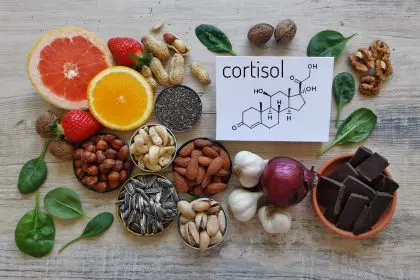Recent studies from Flinders University and the Medical Research Institute in Australia demonstrate a significant connection between dietary choices and colorectal cancer risk, particularly among individuals under 50. The research reveals how specific eating patterns can either protect against or increase susceptibility to gastrointestinal cancers.
Scientific mechanisms
The relationship between diet and cancer prevention operates through multiple pathways. Fiber-rich foods help maintain healthy gut bacteria populations, which produce beneficial compounds that protect the colon’s lining. Additionally, certain plant compounds demonstrate anti-inflammatory properties that may prevent cellular damage leading to cancer development.
Age-related implications
With colorectal cancer rates rising dramatically among younger adults, understanding dietary influences becomes increasingly crucial. Research indicates that poor dietary habits established in early adulthood may accelerate cancer risk, making prevention particularly important for those under 50.
The gut microbiome connection
Recent discoveries highlight the vital role of gut bacteria in cancer prevention. A healthy microbiome, supported by proper diet, helps regulate inflammation, immune response, and cellular repair mechanisms. Dietary choices directly influence which bacterial species thrive in our digestive system.
Protective dietary elements
The study emphasizes several key dietary components that offer protection against colorectal cancer. Fiber from varied plant sources promotes regular bowel movements and feeds beneficial bacteria. Healthy fats reduce inflammation and support cellular health, while antioxidants from colorful fruits and vegetables protect against DNA damage. Specific compounds in dark green vegetables demonstrate anti-cancer properties.
Risk-increasing factors
Processed foods, red meats, and high sugar consumption significantly increase cancer risk through multiple mechanisms. Processed meats contain potentially harmful compounds formed during preservation, while excessive sugar promotes inflammation and obesity, both risk factors for cancer. Certain cooking methods may produce carcinogenic compounds.
International perspectives
Global studies reveal interesting patterns in colorectal cancer rates correlating with different dietary traditions. Countries with traditionally plant-based diets often show lower cancer rates, while those adopting Western dietary patterns experience increasing cancer incidence. These findings provide valuable insights into the role of cultural dietary practices in cancer prevention.
Prevention strategies
Beyond diet, researchers identify several complementary prevention approaches. Regular physical activity enhances the benefits of healthy eating, while adequate sleep supports immune function and cellular repair. Stress management helps maintain healthy gut function, and regular medical screenings enable early detection. These strategies work synergistically with proper nutrition for optimal cancer prevention.
Healthcare implications
The economic impact of preventive dietary measures versus cancer treatment costs supports increased focus on dietary intervention. Healthcare systems worldwide recognize the potential savings from effective prevention strategies. This understanding drives investment in nutritional education and preventive care programs.
Implementation challenges
Despite clear evidence supporting dietary prevention, several barriers exist. Limited access to healthy food options in many communities creates obstacles to proper nutrition. Time constraints affect food preparation capabilities, while cost considerations for fresh, whole foods impact dietary choices. Cultural and social influences also play significant roles in eating habits.
Educational initiatives
Public health experts emphasize the need for comprehensive nutrition education starting in early childhood. Schools and communities must provide clear, practical dietary guidelines that respect cultural differences. Supporting sustainable dietary changes requires ongoing education and resources for all age groups.
Future research directions
Ongoing studies explore specific mechanisms of dietary protection and personalized nutrition approaches. Research examining the impact of meal timing and frequency provides new insights into optimal eating patterns. Scientists continue investigating interactions between diet and genetic factors that influence cancer risk.
Clinical applications
Healthcare providers increasingly incorporate dietary counseling into routine care. This includes comprehensive risk assessment based on dietary patterns and personalized nutrition recommendations. Regular monitoring of dietary compliance and integration with other preventive measures ensures optimal outcomes.
Success strategies
Successful dietary changes often involve gradual implementation of new habits supported by family and community networks. Regular monitoring and adjustment of dietary practices, combined with professional guidance when needed, help maintain long-term compliance with healthy eating patterns.
Long-term outlook
Research suggests that sustained dietary improvements could significantly reduce colorectal cancer rates over time. The cumulative effect of proper nutrition throughout life offers the greatest protective benefit. This understanding emphasizes the importance of establishing healthy eating habits early and maintaining them throughout life.
This comprehensive approach to understanding diet’s role in colorectal cancer prevention provides valuable insights for individuals and healthcare providers alike. By implementing these evidence-based dietary recommendations and supporting them with lifestyle modifications, we can work toward reducing the impact of this increasingly common cancer.














